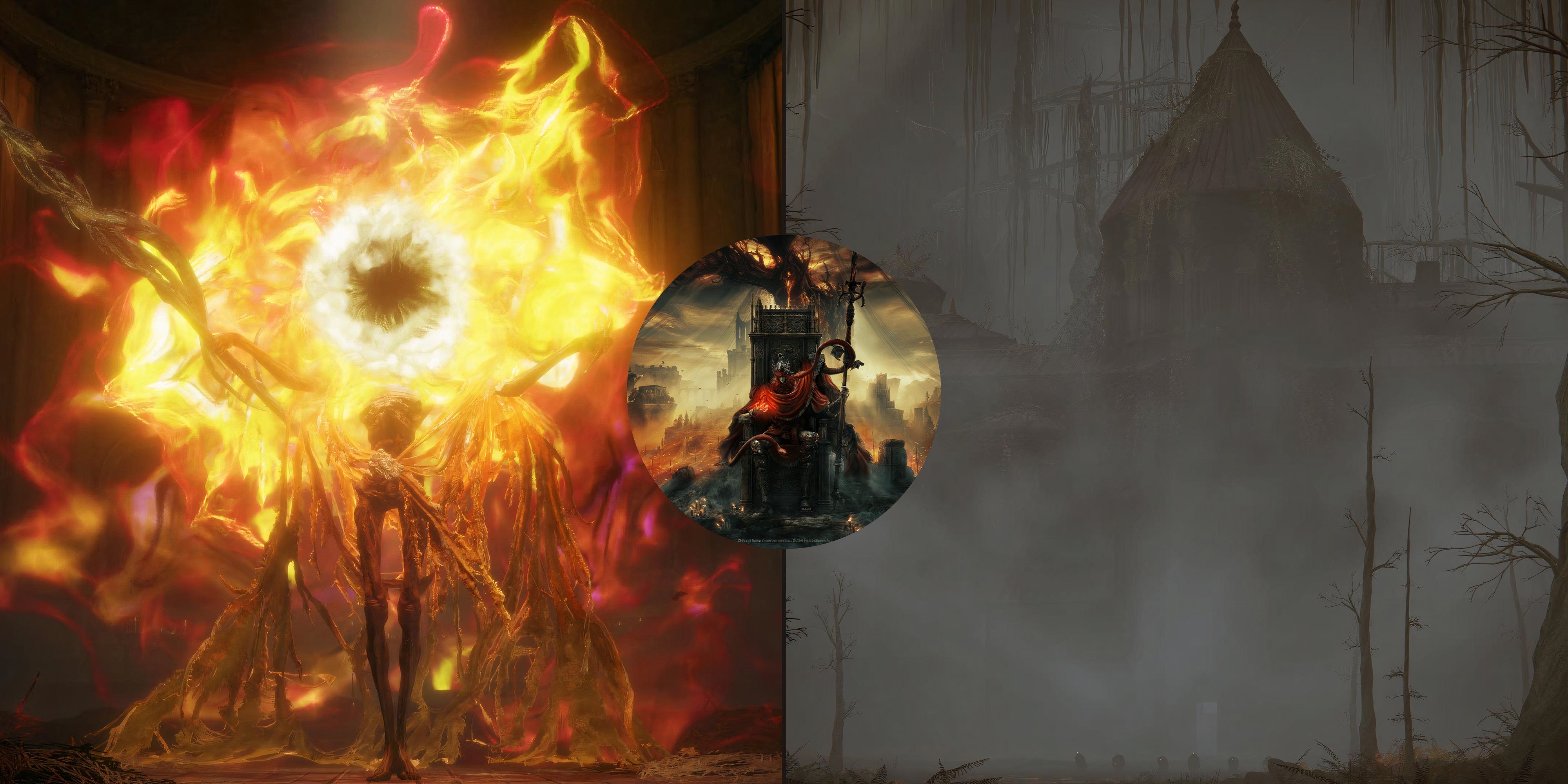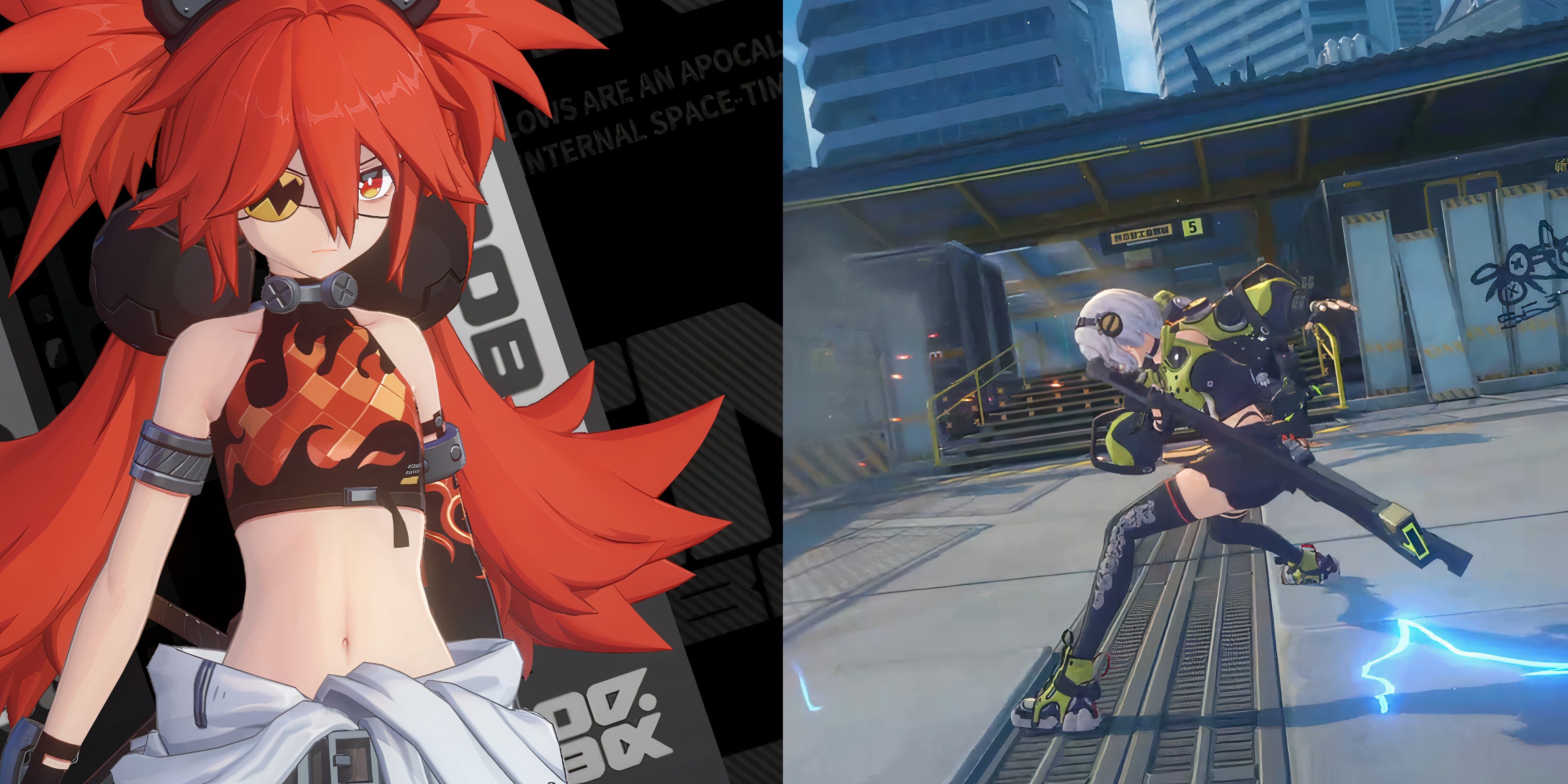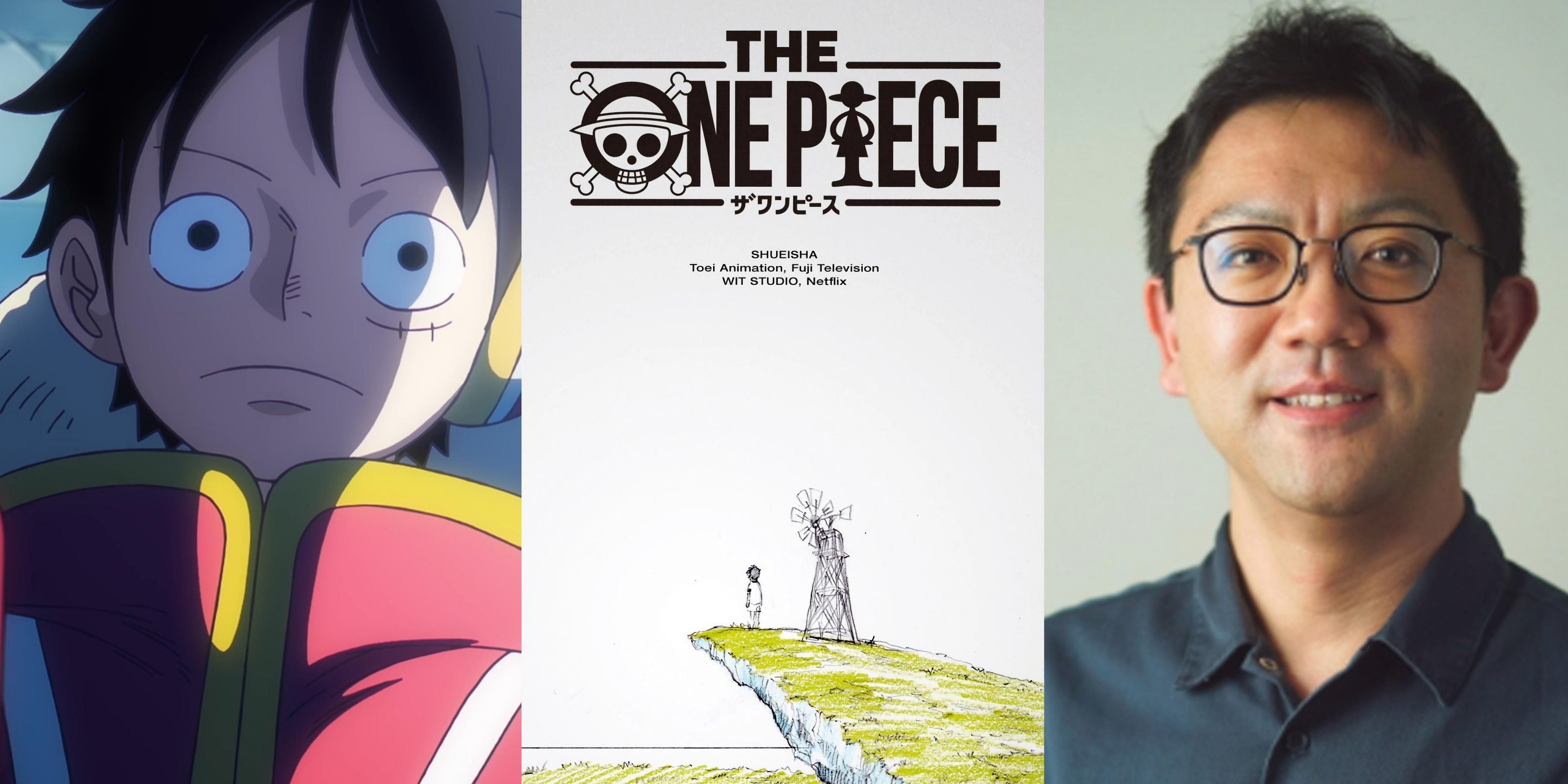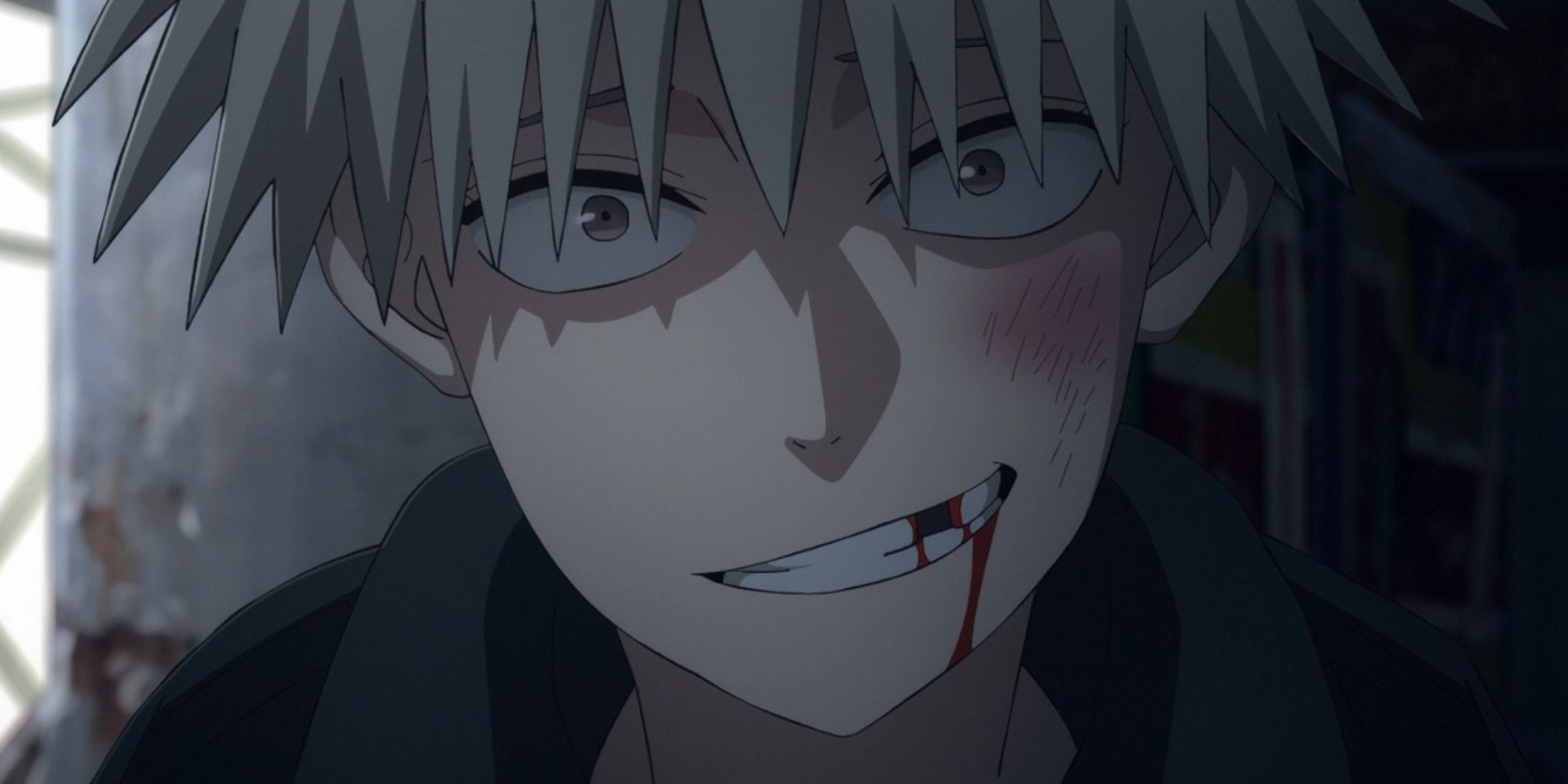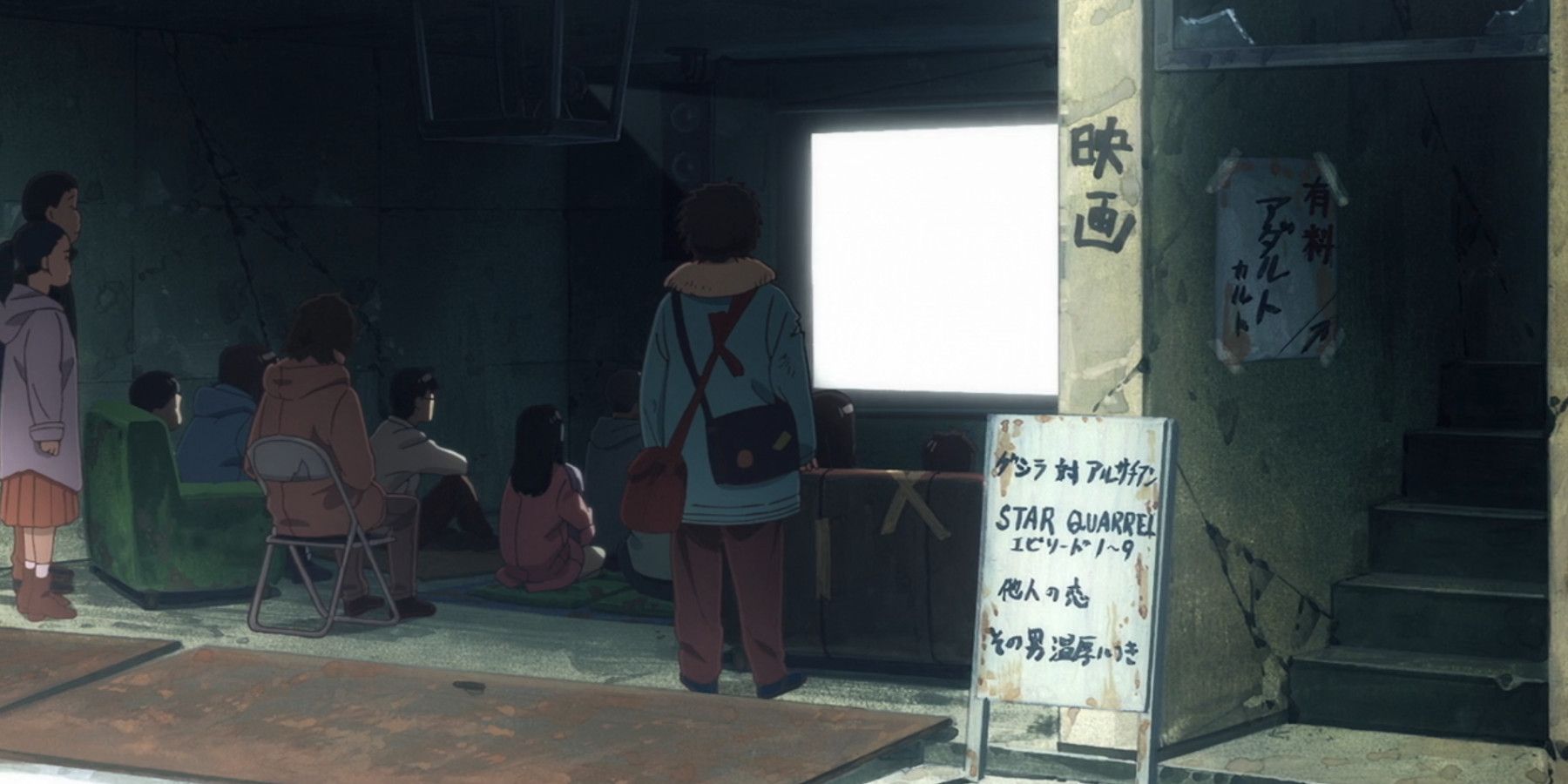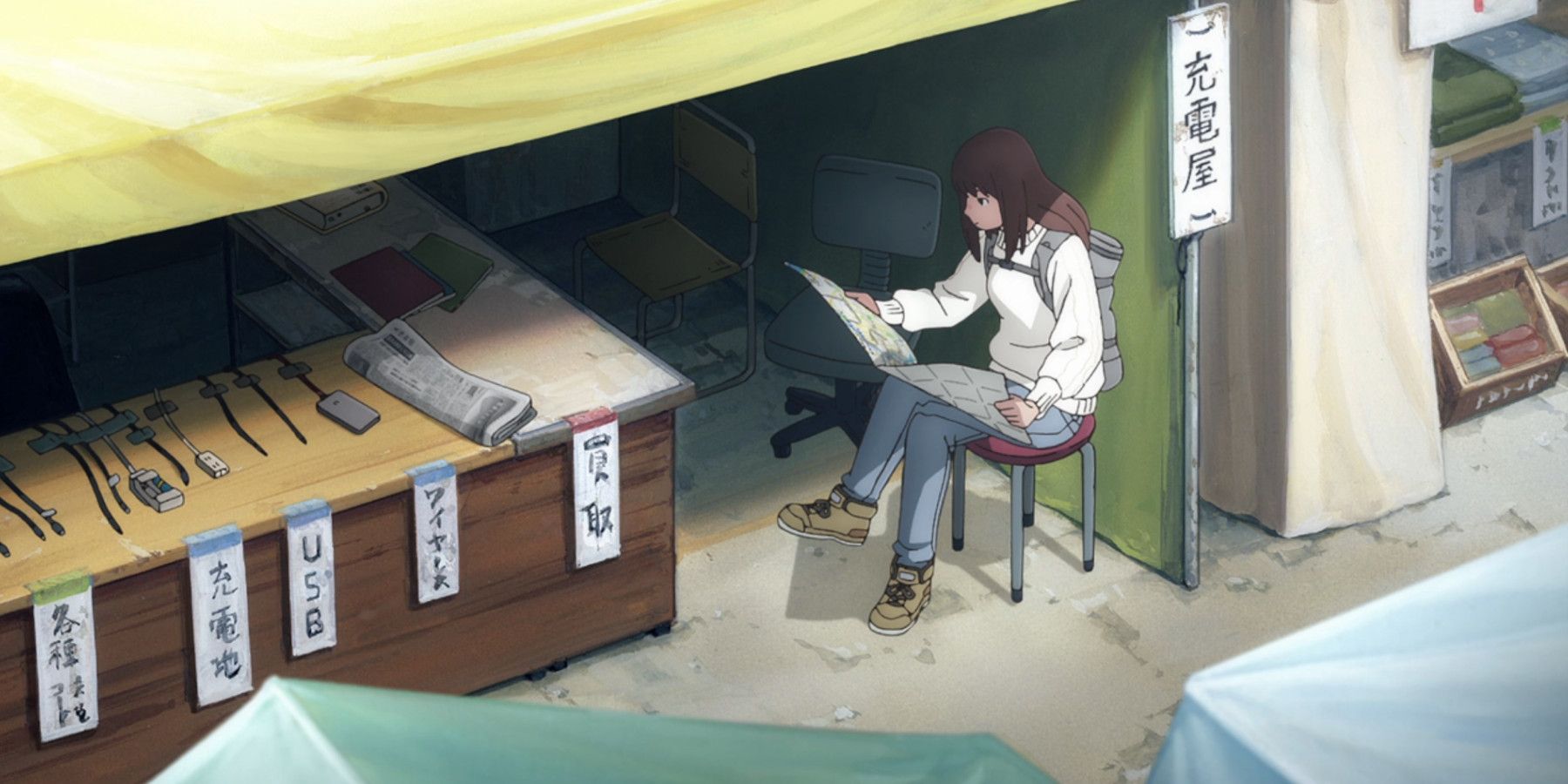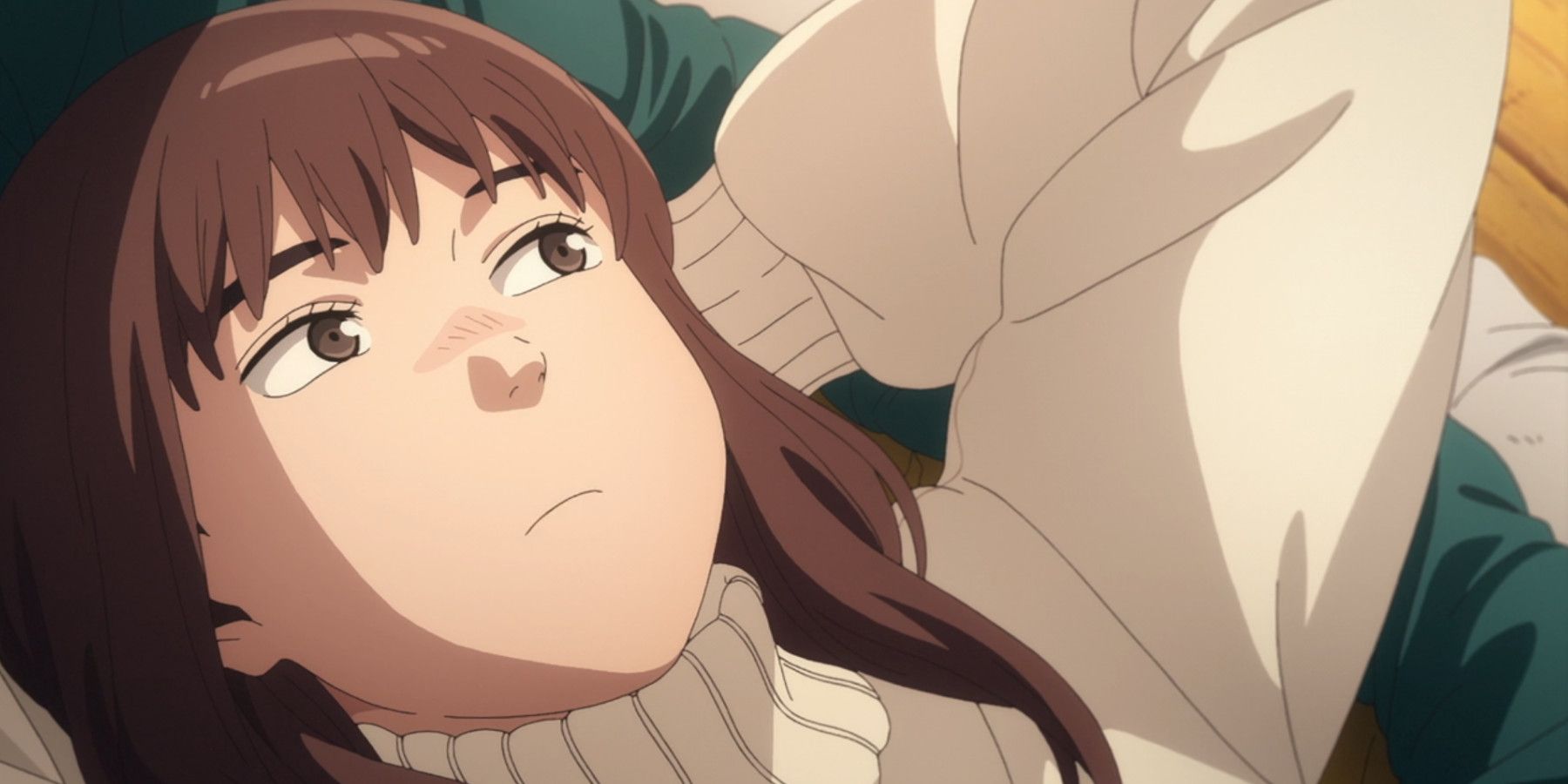There's a clever bit of wordplay in the new episode of Heavenly Delusion about subjectivity; a back-and-forth about the notations on a map dictating the cleanliness of water in the city. What at first seems like just well-written banter takes on new meaning when you remember that the whole objective of the series is to find "Heaven," a subjective concept if ever there was one.
Over five episodes the show has depicted a post-apocalyptic society that - despite its fair share of dangers - has managed to create communities and towns that function as close to modernity as is attainable. Episode 5, "Day of Fate," sees Kiruko and Maru resting up in a neighborhood full of shops and tents, getting into some trouble and pondering what the "Heaven" they're searching for may be.
"Heavenly" Amenities
It says a lot that the episode begins displaying this bustling community, from families to jobs to an honest to god theater showing what is clearly supposed to be Star Wars. This tent city seems to have all of this suggestion of normalcy and plenty of conveniences that are presented casually as opposed to with some great astonishment.
This makes the city feel so much more lived-in and believable because if humanity loses access to certain amenities, they will obviously attempt to recreate those things in a new way, albeit with less to work with. A city may lose electricity, but there will always be ways to get it back, same with good cooking or even entertainment media.
But these pastiches of civilization exist because the creators of these communities were alive to see the world before the Great Collapse, or were raised by people with those memories. These are attempts to recreate life before the apocalypse, and - on a small scale - they are definitely on the right track, which is so important to setting up Kiruko and Maru's dilemma.
Compared to their circumstances, obviously, life before the Collapse is preferable. One might even be compelled to call such a world "heavenly" in contrast, but because of the relationship to that world on the part of the characters and the viewer, that description feels wrong. To someone watching Heavenly Delusion, our world is very clearly not Heaven.
The characters in the show were born after the collapse and have little frame of reference for life before it, besides books, media, and those who were alive at the time. And functionally, those answers are pointless to their quest, not just because the story clearly delineates modern society from their goal, but because they are already familiar with pre-collapse amenities, just on a smaller scale.
Before The Collapse
After Kiruko's panic at the thought of Maru being gone, she and Maru both settle down and discuss theories about the Collapse. The idea that humans relied on robots and in the meantime, began to grow suspicious of other humans, leading to conflicts and their own extermination. Kiruko writes off the story as too outlandish, but the moral was simply that life before wasn't Heaven either.
Maru says "If Heaven existed before the Great Disaster, I'd have to go into the past, which is impossible." There are a lot of layers to this line, but ultimately it reveals the subjectivity at the heart of their quest. Heaven's contents are either something that is known, and therefore it's about replicating that idea, or it's something unimaginable and wholly new.
Earlier in the episode, Kiruko reflects on an old rumor from when she was back in her original body, about the Ministry of Reconstruction, a group attempting to restore society as it was before the Collapse. There's an obsession with getting back to that point that is felt in every aspect of the show's worldbuilding, and if it weren't there, the story might not be as compelling.
The world of Heavenly Delusion reflects the amenities of a functional modern society as much as it can within the framing of a post-apocalypse so that it can acknowledge the subjectivity of Heaven. But also, depending on what answers Kiruko and Maru find going forward, it might reveal the titular delusions of such ideas as well.
When Kiruko ponders if there's a place where society has already been restored, we return to Tokio's story inside the nursery. Last week, I wrote about the hints that this storyline takes place about 22 years before Kiruko and Maru's story, though this still hasn't been confirmed. If it's revealed to be true, it only proves Maru's point that Heaven isn't in the past.
So what could it be and is it worth seeking in the first place? Going back in time might be impossible, and chasing a pastiche of civilization lost might just lead one to get stuck in the past, but it seems to have worked for the characters of this world. This is one of those rare post-apocalyptic stories that don't feel utterly hopeless all the time.
Heavenly Delusion is an impeccably well-balanced portrayal of the downfall of society that contains some healthy optimism while never letting the characters become too comfortable. There are threats everywhere - both humans and monsters - and everyone's searching for their own Heaven, but as for which ones are real and which ones are fake, it's all rather subjective.
